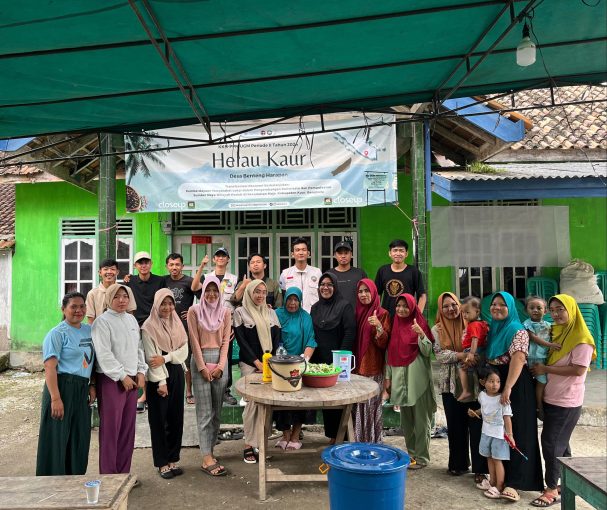
Aloisius Andhika Mahesa Kanigara, a student of the Agricultural Microbiology Study Program from the 2021 cohort, has just completed his Community Service Program (KKN) in Linau Village, Maje Sub-district, Kaur Regency, Bengkulu Province. The KKN program took place from July 1 to August 19, 2024. Andhika and his team applied the knowledge they learned on campus through work programs designed to empower the local community. One of the programs carried out was the production of organic fertilizer using EM4, which is expected to help the people of Linau, most of whom work as fishermen, in improving soil quality and their agricultural yields.
In addition, Andhika also initiated the production of eco-enzymes from organic waste and organized socialization sessions on the importance of organic farming and family medicinal plants. These programs are not only aimed at fulfilling a mandatory course requirement but also at having a positive impact on the coastal community of Linau. Andhika hopes that the knowledge applied during the KKN can be sustainable and continue to benefit the residents even after the program ends. This activity also served as a platform for Andhika to develop himself in terms of interacting with the community and managing time to ensure all programs are well-executed. This synergy serves as strong evidence of achieving the goals of SDG 1: No Poverty, SDG 2: Zero Hunger, SDG 3: Good Health and Well-Being, and SDG 8: Decent Work and Economic Growth.
Author: Aloisius Andhika Mahesa Kanigara
